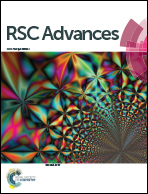Formation of intrinsic and silicon defects in MoO3 under varied oxygen partial pressure and temperature conditions: an ab initio DFT investigation
Abstract
Molybdenum trioxide (MoO3) is a promising material for energy conversion applications, including recent uses as a hole selective contact in silicon photovoltaic devices. The electrical and chemical properties of MoO3 are known to be strongly sensitive to the presence of intrinsic and extrinsic defects, which in turn are dependent on the fabrication route and processing conditions used to form the device layers. Of particular interest to this study were intrinsic defects comprising oxygen vacancies and extrinsic defects involving possible contaminant silicon atoms. Density functional theory simulations were used to predict defect concentrations as a function of processing temperature and oxygen partial pressure. A rigorous method is outlined to calculate defect formation energies for all intrinsic defects in MoO3, resolving conflicting information arising from previous studies. Brouwer diagrams were constructed and used to show that the charge neutral oxygen vacancy is dominant under most of the temperature and oxygen partial pressure conditions investigated. It was also shown that at commonly-used processing temperatures and oxygen partial pressures, silicon interstitials in MoO3 can introduce a spin-polarised defect state 0.5 eV above the MoO3 valence band maximum. Their concentration in MoO3 may reach 1.3 ppm with processing conditions of 700 K and 10−6 atm oxygen partial pressure, and this concentration is predicted to increase dramatically with higher temperatures and/or lower oxygen partial pressures. Our findings highlight the possibility of silicon contamination in hole-selective contact layers for silicon photovoltaic devices, with a potential increase in the parasitic absorption due to silicon defects in the contact layers reducing energy conversion efficiency.



 Please wait while we load your content...
Please wait while we load your content...